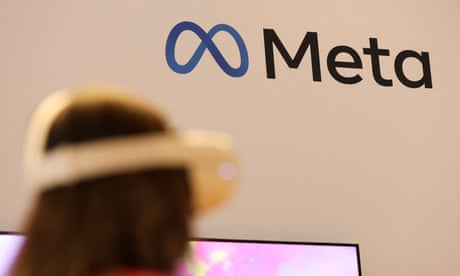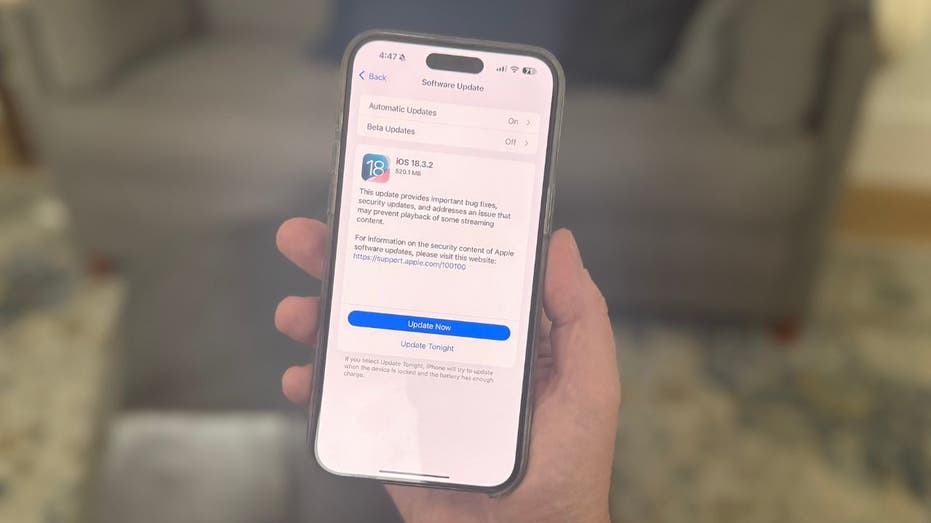- by foxnews
- 15 Mar 2025
MetaŌĆÖs virtual reality project will finally have legs - literally
MetaŌĆÖs virtual reality project will finally have legs - literally
- by theguardian
- 16 Oct 2022
- in technology

A year after changing its name, the company formerly known as Facebook has revealed its plans to give the metaverse legs - literally.
Mark Zuckerberg's virtual reality project is getting a raft of additions including a $1,499 (Ż1,356) "pro" headset, integration with Microsoft Office and the sitcom The Office, and, yes, the ambulatory appendages.
Legs join shoulders and knees, though not yet toes, as part of an upcoming visual overhaul of the avatars in Meta's Horizon virtual worlds, Zuckerberg revealed. Currently, other users simply hover slightly above the ground, with heads, arms and torsos rendered in a cartoony style but bodies ending at the waist. As a result, legs are "probably the most requested feature on our roadmap", the chief executive and co-founder said. "But seriously, legs are hard, which is why other virtual reality systems don't have them either."
The company's systems will now try to guess the position of users' legs and feet using a number of inputs, from direct visual tracking using front-facing cameras to more advanced attempts to predict their movement with just the motion of the head and hands, based on models of human anatomy.
Derision of Horizon's avatars has prompted irritation from Zuckerberg in the past. In August, a post from the Facebook founder of his glassy-eyed figure standing in front of a virtual Eiffel Tower went viral on social media, with people mocking the vaguely soulless appearance of the virtual world. In response, he shared a render of a more realistic version of his virtual face a few days later. "I know the photo I posted earlier this week was pretty basic - it was taken very quickly to celebrate a launch," he said. "The graphics in Horizon are capable of much more."
While legs may have been the most-requested feature, the star of Meta's Connect event was the Quest Pro headset, a new business-focused device that will sell for $1,499 and push what is possible in virtual reality forward. The headset introduces two new headline features to Meta's VR lineup: eye tracking and "passthrough" mixed reality.
The former uses tiny cameras mounted on the inside of the headset to track where in the virtual world a user is looking. That lets developers offer experiences that respond to a user's attention, from virtual characters that react to being looked at to interfaces that can be activated with a glance. But it also enables whole new levels of surveillance, with advertisers potentially able to assess exactly who has looked at what promotions for how long.
Passthrough mixed reality attempts to offer a similar experience to devices such as Magic Leap and Microsoft's HoloLens AR glasses, layering a virtual experience on top of the real world. But rather than experimenting with holographic lenses like those two devices, the Quest Pro uses high-resolution front-facing cameras to simply record the real world and then display it on the interior screens. That turns a display technology challenge into one of computing speed, since the device needs to be able to process and display the live footage rapidly enough to have zero lag, or users would get horrible motion sickness.
Neither feature is cheap, and Zuckerberg implied the Quest Pro will be sold at a loss despite costing $1,100 more than its mainstream Quest 2 headset. "The strategy overall is not to make money on the hardware," he told tech site The Verge, though "there are lots of different ways to basically do the accounting on this."
But the market for the Pro is professional users. "If I could give all of our engineers a device and have them be 3% more productive, I'd give them a $1,500 device, for sure," he added. To that end, the company announced new deals with partners including NBC, which will bring experiences based on The Office sitcom to the platform, as well as Microsoft, which is a version of Office, Teams and even Xbox Game Pass for the Quest platform.
- by foxnews
- descember 09, 2016
Neighbors react as viral 'Tunnel Girl' granted permit to continue digging massive bunker under home
"Tunnel Girl" in Herndon, Virginia, "finally" got her tunnel project approved after pausing the project due to a potential violation. Locals and social media users react.
read more





